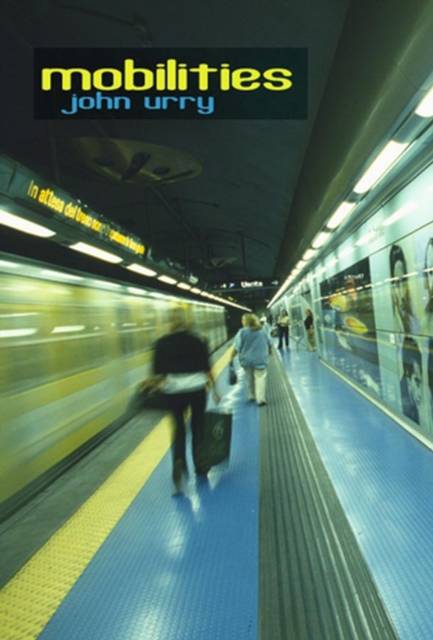
Door een staking bij bpost kan je online bestelling op dit moment iets langer onderweg zijn dan voorzien. Dringend iets nodig? Onze winkels ontvangen jou met open armen!
- Afhalen na 1 uur in een winkel met voorraad
- Gratis thuislevering in België vanaf € 30
- Ruim aanbod met 7 miljoen producten
Door een staking bij bpost kan je online bestelling op dit moment iets langer onderweg zijn dan voorzien. Dringend iets nodig? Onze winkels ontvangen jou met open armen!
- Afhalen na 1 uur in een winkel met voorraad
- Gratis thuislevering in België vanaf € 30
- Ruim aanbod met 7 miljoen producten
Zoeken
Omschrijving
Issues of movement - of people, things, information and ideas - are central to people's lives and to most organisations. From oil wars to SMS texting, from airport expansion controversies to the decline of walking, from slave-trading to global terrorism, from global warming to teleworking, issues of 'mobility' are centre-stage upon many academic and policy agendas. These topics and issues are increasingly analysed as part of a concern with 'mobility' which this wide-ranging book both describes and seeks to develop.
John Urry has been at the centre of these debates and he draws upon an extensive array of new research and material to develop what he calls the 'new mobilities paradigm' for the social sciences. He shows how this paradigm makes comprehensible social phenomena which were previously opaque. He examines how 'mobilities' each presuppose a 'system' that permits predictable and relatively risk-free repetition. The book outlines various such systems and then analyses their intersecting implications for social inequality, for social networks and meetings, for the nature of places and for alternative mobility futures.
Mobilities is thus both an analysis of different mobilities historically and in the present and an argument that the social world will be analysed quite differently once peoples' lives, organisations, states and global institutions are seen to be dealing with extensive and hugely contested mobility processes. This book rewrites social science through a mobilities paradigm.
John Urry has been at the centre of these debates and he draws upon an extensive array of new research and material to develop what he calls the 'new mobilities paradigm' for the social sciences. He shows how this paradigm makes comprehensible social phenomena which were previously opaque. He examines how 'mobilities' each presuppose a 'system' that permits predictable and relatively risk-free repetition. The book outlines various such systems and then analyses their intersecting implications for social inequality, for social networks and meetings, for the nature of places and for alternative mobility futures.
Mobilities is thus both an analysis of different mobilities historically and in the present and an argument that the social world will be analysed quite differently once peoples' lives, organisations, states and global institutions are seen to be dealing with extensive and hugely contested mobility processes. This book rewrites social science through a mobilities paradigm.
Specificaties
Betrokkenen
- Auteur(s):
- Uitgeverij:
Inhoud
- Aantal bladzijden:
- 336
- Taal:
- Engels
Eigenschappen
- Productcode (EAN):
- 9780745634180
- Verschijningsdatum:
- 17/12/2007
- Uitvoering:
- Hardcover
- Formaat:
- Genaaid
- Afmetingen:
- 162 mm x 234 mm
- Gewicht:
- 621 g

Alleen bij Standaard Boekhandel
+ 254 punten op je klantenkaart van Standaard Boekhandel
Beoordelingen
We publiceren alleen reviews die voldoen aan de voorwaarden voor reviews. Bekijk onze voorwaarden voor reviews.











